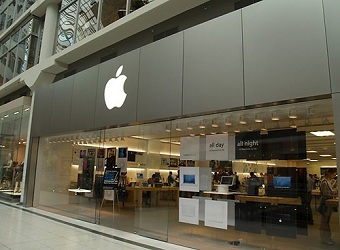Apple Inc. is back in the corporate bond market on Tuesday, with a five-part deal that extends its obligations to include a 30-year maturity.
The iPhone maker is planning to issue 2-year fixed- and floating-rate notes, along with 5-year and 10-year notes and a 30-year bond, according to research firm CreditSights. With that combination, Apple aims to raise $6 billion to $7 billion. This latest offering includes one fewer tranche than the $7 billion deal the company completed in May.
Goldman Sachs, Bank of America Merrill Lynch and Deutsche Bank are underwriters on the deal, the proceeds of which are earmarked for share buybacks and dividend payments, as well as the catch-all “general corporate purposes,” said analyst Jordan Chalfin.
Apple has repeatedly borrowed in the bond market to fund its massive shareholder return program rather than repatriate cash held overseas that would be subject to a 35% corporate tax rate. President Donald Trump has pledged a tax holiday to encourage U.S. companies with big overseas cash piles to bring that money back home, but like many of his policy proposals, it has stalled as Republicans struggle to overhaul health care and work on promised tax reform.
Apple has the most cash overseas of any U.S. company at about $230 billion, according to Moody’s Investors Service. The company first borrowed in the bond market in 2012, and its bond debt load has since grown from zero to about $96.6 billion as of July 1, according to FactSet.
CreditSights, which recently upgraded its recommendation on Apple bonds to market perform, said it would be cautious about the 30-year tenor, given the company’s business profile. Apple is still highly reliant on the strength of the iPhone, which accounted for 63% of sales in the last 12 months. The company has announced a 10th anniversary launch event for the smartphone for Sept. 12, at which it is expected to reveal the iPhone 8.
The phone is expected to come with new features and a bright new price tag of $1,000. Analysts are mixed on the outlook for iPhone 8, with some expecting it to launch a super cycle and some saying that consumers are barely aware of the changes and new design.
Buy-side investors have questioned the wisdom of buying 30-year debt issued by a tech company, which is always at risk of having its technology become obsolete.
“We think Apple offers decent value on its 10-year bonds, although we remain cautious on the 30-year,” said Chalfin.
Initial price talk pegs new-issue concession of about 10 basis points on the 30-years, about 15 basis points on the 5-years and about 20 basis points on the 2-years and 10-years, he said.
“The 10-year could be attractive if it comes with any concessions i.e. prices wider than Oracle and Amazon which are both trading at about 82 basis points,” over comparable Treasurys, he said.
Chalfin said it’s unusual to see Apple tap the market so late in the calendar year. The company typically updates its shareholder return program during the first-quarter earnings call of the calendar year and tends to issue shortly after that.
In August, the company did its first maple, or Canadian-dollar denominated bond, selling C$2.5 billion of 2.513% notes than mature in August of 2024.
If this deal comes in Chalfin’s expected range, Apples’ pro forma gross leverage would be 1.6 times, up from 1.4 times as of its third fiscal quarter.
Apple’s most-active bonds, the 3.200% notes that mature in May of 2027, were last trading at 102.525 cents on the dollar, yielding 2.892%, according to MarketAxess.
The company’s 30-year bonds were quoted at 108.303 cents on the dollar to yield just 3.776%, according to MarketAxess.
In the equity market, Apple shares were down 0.6% Tuesday. They’ve gained 41% in 2017, while the Dow Jones Industrial Average has gained 10.5% and the S&P 500 has gained 10%.
Source: MarketWatch
